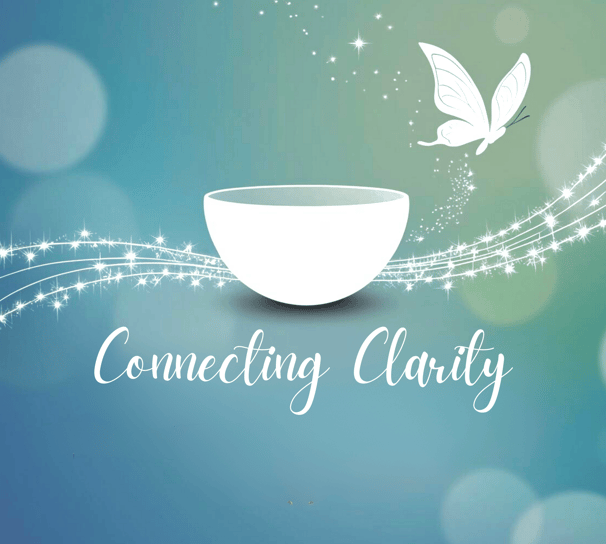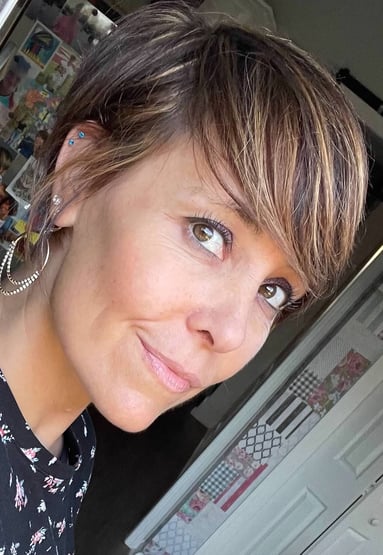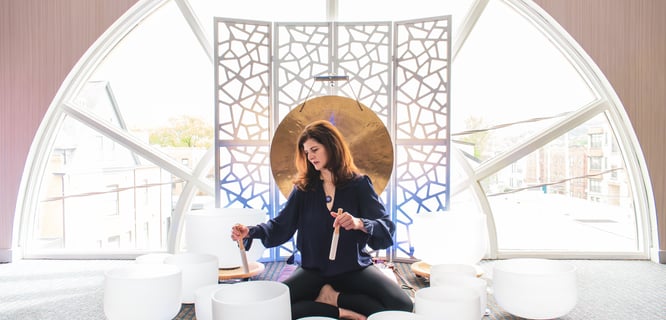Connecting Clarity: Sound Bath Wellness
Kimberly – Doctoral Researcher | Sound Advocate | Wellness Educator
Kimberly is a passionate health and wellness educator currently pursuing her Doctor of Education (Ed.D.) in Curriculum and Instruction with a specialization in Health and Wellness, with graduation anticipated in December 2025. Her academic and professional journey has been deeply rooted in the science of healing, both physical and emotional, and she now stands at the forefront of a groundbreaking field: sound vibration therapy.
Kimberly’s doctoral dissertation exmined the impact of crystal quartz sound baths on stress levels in K–12 educators, a group that increasingly experiences emotional burnout and chronic stress. Through a quantitative, quasi-experimental design, her research evaluated how short, focused sound bath sessions influenced self-reported stress using validated psychological scales. Her findings are contributing to a growing body of evidence that positions sound as a legitimate, data-supported tool for emotional regulation and nervous system recalibration.
Looking ahead, Kimberly is expanding her research to investigate how sound frequency and vibration can enhance physical performance accuracy in athletes, a promising new direction in sports science and mental training. She also plans to explore the use of sound vibration in medical settings, particularly in coma recovery protocols, where early-stage findings suggest potential benefits for neural stimulation and brainwave activity.
This wellness approach is grounded in rigorous academic research. Kimberly A. Williams’ doctoral dissertation explores the impact of a 15-minute crystal quartz singing bowl sound bath on teacher stress using a quantitative quasi-experimental design. Her literature review integrates robust theoretical frameworks and multidisciplinary findings to support the use of sound therapy in educational and wellness contexts.
Key Strengths of the Literature Review:
Deep Integration of Theories
Grounded in Bandura’s Self-Efficacy Theory and Salovey & Mayer’s Emotional Intelligence Theory, the research links stress reduction directly to improved professional confidence and emotional regulation.Multidisciplinary Sources
The review draws from psychology, neuroscience, education, vibrational healing, and alternative therapies—offering a comprehensive, science-based understanding of how sound therapy can support stress recovery.Evidence for Sound Therapy
Citing studies on both Tibetan and crystal quartz singing bowls, the work highlights the unique vibrational properties and frequencies associated with reduced anxiety, improved mindfulness, and physiological relaxation.Realistic Acknowledgment of Limitations
The dissertation transparently includes counterarguments and gaps in the literature, enhancing the scholarly credibility and setting the stage for future research.
In a world where conventional wellness strategies often fall short, Kimberly’s work bridges the gap between ancient vibrational practices and modern science. As sound healing continues to gain recognition in both wellness and clinical spaces, her research is among the few scholarly efforts dedicated to grounding these practices in empirical data. She believes that sound is medicine, and her work is opening doors for integrating vibration-based interventions in schools, athletic programs, therapy rooms, and healthcare environments.
When she’s not writing or analyzing data, Kimberly offers immersive sound bath experiences through her business, Connecting Clarity, where she creates spaces for healing, stillness, and self-discovery.




Who trained Kimberly?
Monique Mead: A Pioneer in Music, Healing, and Education
Monique Mead is an internationally acclaimed violinist, educator, and innovator who has spent over three decades exploring the transformative power of music. As the Director of Music Entrepreneurship at Carnegie Mellon University (CMU), she has guided students in forging meaningful careers that blend artistic excellence with community impact. Her initiatives include launching the first student-led university sound bath programs at CMU and University of Pittsburgh (Pitt) and developing SonicScore, the first notation system for singing bowls. Mead’s research on the effect of sound baths on student mental health showed a 70% reduction in stress after a single session.
In 2021, Mead founded a sound healing studio at the Awareness & Wellness Center in Pittsburgh, where she hosts a wide offering of sound bath experiences and trainings. CEU approved for therapists, Monique Mead’s Sound Practitioner Certification program teaches evidence-based techniques to promote mental clarity and emotional balance. Combining the sound of violin, singing bowls, gongs, and harp, Monique enjoys creating sound bath experiences in unique venues from cathedrals to caves.




CONNECT WITH US
Contacts
770-330-4191 (Please leave a message!)
contact@connectingclaritycenter.com
